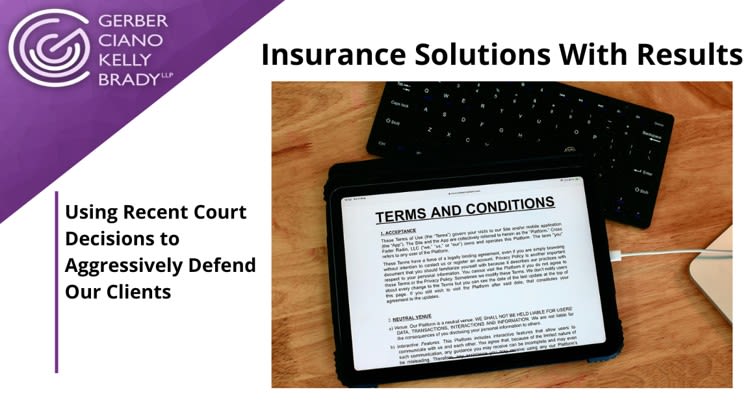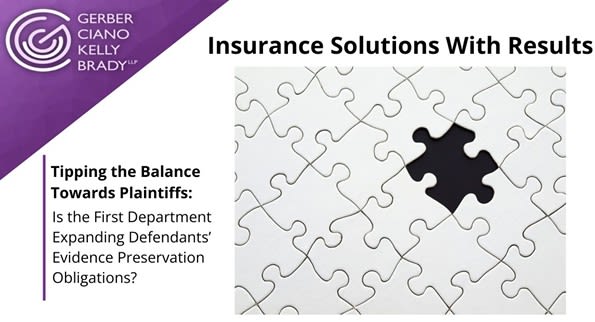
This battle has been going on for several years and continues. We previously told you about a recent First Department case “Is the Tide Turning” where the Appellate Division allowed a plaintiff to be questioned at his deposition about RICO suits. The insurance industry has been fighting against fraud in construction and other accidents by aggressively defending these personal injury actions and now the First Department has again weighed in on the issue.
In Tavares v. Tuck-It-Away Assoc., the Appellate Division, First Department affirmed the trial court’s order granting Defendant’s motion to assert affirmative defenses sounding in fraud. The Appellate Division ruled Defendants demonstrated that the proffered amendments were not palpably insufficient or clearly devoid of merit. The First Department then identified some facts that supported the fraud defense, “Although plaintiff testified that she was close to her daughter and spoke to her at least once a week, plaintiff nevertheless claimed to be unaware that her daughter had a trip and fall accident about 20 days before plaintiff’s accident, that her daughter also commenced a personal injury action in which she alleged to have sustained injuries similar to plaintiff’s claimed injuries, and that she was represented by the same law firm as plaintiff. In addition, plaintiff alleged that she sustained cervical spine disc herniations requiring fusion surgery as a result of the accident, yet plaintiff’s medical records show that plaintiff initially denied having neck pain and was found to be “[n]egative for neck stiffness” by emergency room personnel a few hours after the accident.”
The Appellate Division continued and addressed medical issues with respect to plaintiff’s claim of prejudice because of an alleged delay. According to the ruling, “Plaintiff was deposed about six months before Columbia moved to amend, and the June 16, 2024 New York Post article, which reported that plaintiff’s spinal surgeon was accused of performing unnecessary fusion operations on patients for profit, was published about a month before Columbia sought leave. This delay did not hinder plaintiff’s case preparation nor prevent plaintiff from acting in support of her position given that the note of issue had not been filed.”
Finally, the Appellate Division commented on the potential merit of the fraud amendments, holding that Defendant “demonstrated that its proposed additional affirmative defense alleging that plaintiff committed a fraud on the court was not palpably insufficient or clearly devoid of merit. A “[f]raud on the court involves willful conduct that is deceitful and obstructionist, which injects misrepresentations and false information into the judicial process so serious that it undermines the integrity of the proceeding”…. Here, Columbia demonstrated that plaintiff willfully engaged in deceitful and obstructionist conduct designed to undermine the integrity of this proceeding by attempting to provide false and misleading testimony regarding her alleged injuries and how she sustained them.”
This case may be yet another stronger signal that the First Department has hardened its attitude toward fraudulent personal injury claims. Hopefully, the trial courts will follow the First Department’s lead.
GCKB’s Appellate Advocacy Group regularly litigates lawsuits that fit the fraudulent claim mold. Contact us to discuss recent developments in the area to help defend against allegedly fraudulent claims.
Should you have any questions, please contact:


